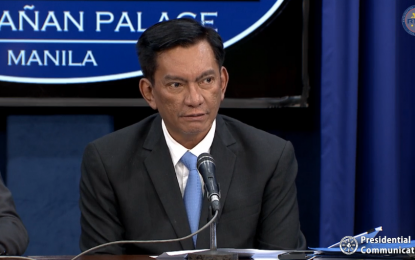
Albay Rep. Joey Salceda
MANILA – The chairman of the House Ways and Means Committee on Thursday stressed the need to pass economic reforms that will enable more investments to enter the country after plunging into pandemic-induced recession in the first half of the year.
In a statement, Albay Rep. Joey Salceda, panel chair, said Congress should prioritize the passage of the Corporate Recovery and Tax Incentives for Enterprises (CREATE) bill, which is one of the legislative priorities identified by President Rodrigo Duterte in his fifth State of the Nation Address.
The proposal seeks to reduce the corporate income taxes (CIT) to 25 percent from the current 30 percent.
Salceda also called for the immediate approval of the proposed Retail Trade Liberalization Act, Public Service Act, and the amendments to the Foreign Investments Act.
“We have already given our versions of all of these reforms to the Senate, so we hope for their speedy approval. We cannot attract new jobs and new investments if, as the OECD (Organization for Economic Cooperation and Development) says, we are the most restrictive to investments in Asia,” Salceda said.
The government reported a 16.5-percent economic contraction in the second quarter, deeper than the revised -0.7 percent in the previous three months and the lowest since 1981.
Salceda noted that investments in infrastructure and human capital development must be made either this year or next year to ensure that the bite out of the Philippine economy will not translate into permanently lost income.
He also highlighted the need to make “wise” investments in agriculture, which grew by 1.6 percent despite the quarantine measures in place.
“Agriculture is a hedge from economic crises. As food will always be an essential good, food production will always be resilient industry,” he said.
He said amendments to the Agri-Agra Reform Act of 2009 are necessary to provide farmers, fisherfolk, and rural communities greater access to credit, as well as the proposal for condonation of the agrarian reform beneficiaries’ (ARBs) loans in Landbank.
“This will release 1.228 million hectares of land for more efficient agricultural use, and will benefit 682,000 ARBs,” he said.
He said the country’s healthcare system should be strengthened as the health outcomes correlate with economic outcomes.
“There is no trade-off between health and livelihood. But there are ways to protect both: expand our healthcare capacity, protect health care workers at all costs, make contact tracing and testing effective and widespread, and make consumers and businesspeople reasonably confident,” he said.
The government reported the country’s gross domestic product (GDP) declined by 9 percent in the first semester, as household consumption and private sector investment significantly dropped given the closure of businesses and the loss of income during the enhanced community quarantine (ECQ).
Salceda said while this is a “bad number”, the Philippine economy can still perform at about 80-percent capacity even with 50 to 70 percent of mobility paralyzed.
“If that is not the definition of economic resilience, I don’t know what is. We can build on these strengths. But we the economic team in Congress, and our counterparts in the Cabinet, will have to keep working hard,” he added.
The House of Representatives on Wednesday passed on second reading House Bill 6953 or the proposed Bayanihan to Recover as One Act (Bayanihan 2).
The bill proposes a PHP162-billion standby fund to support response measures to address the Covid-19 pandemic. (PNA)
